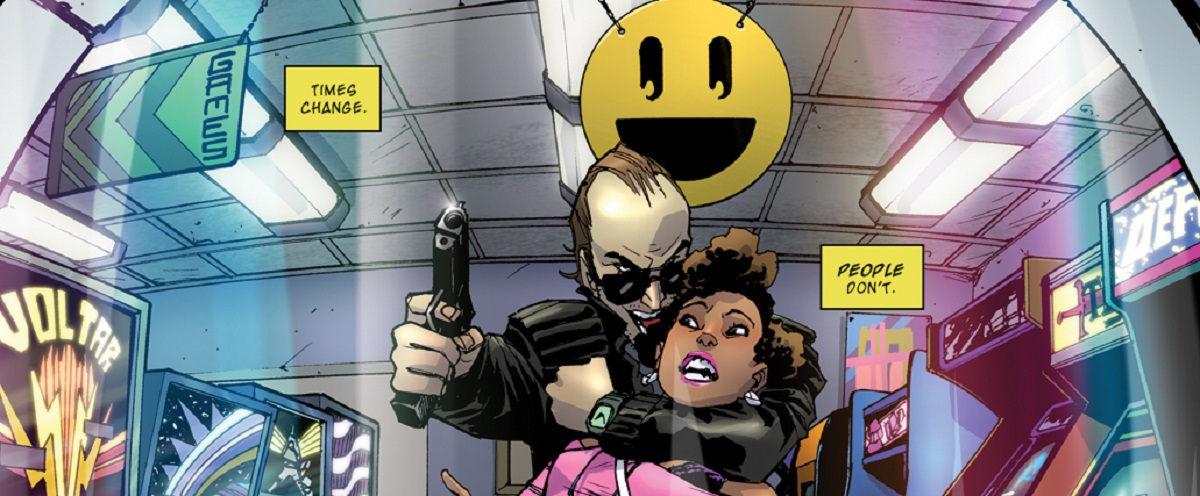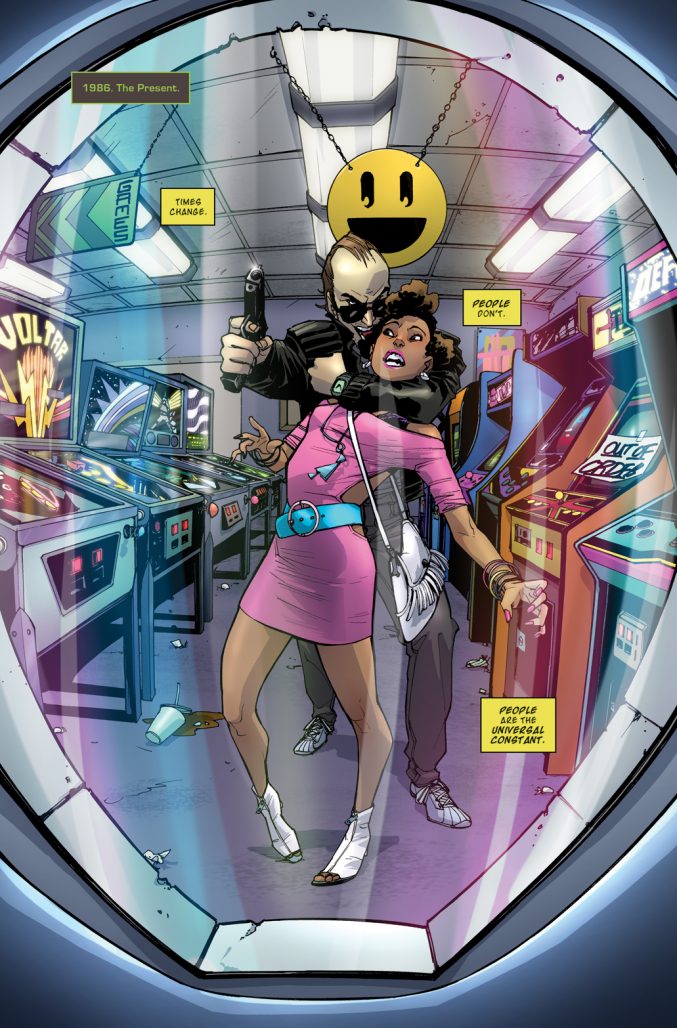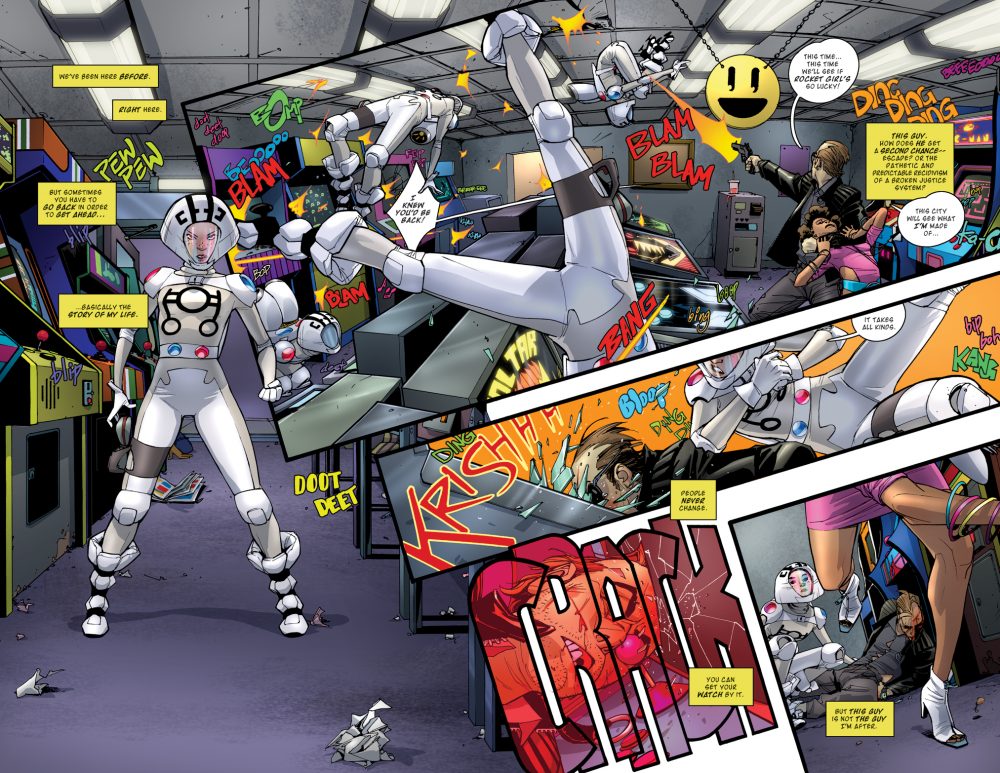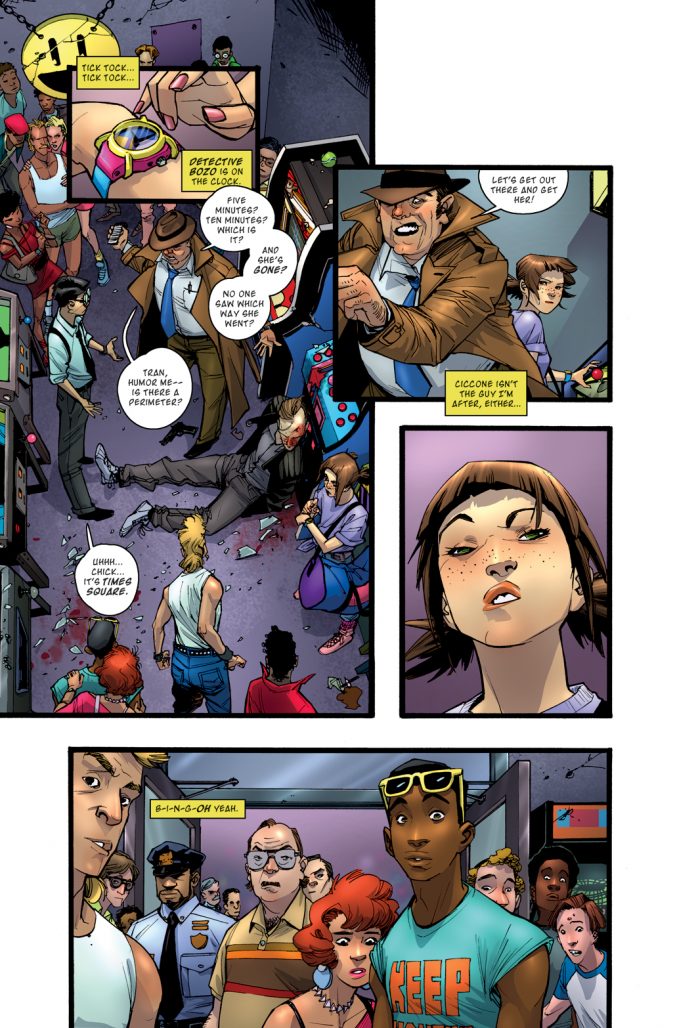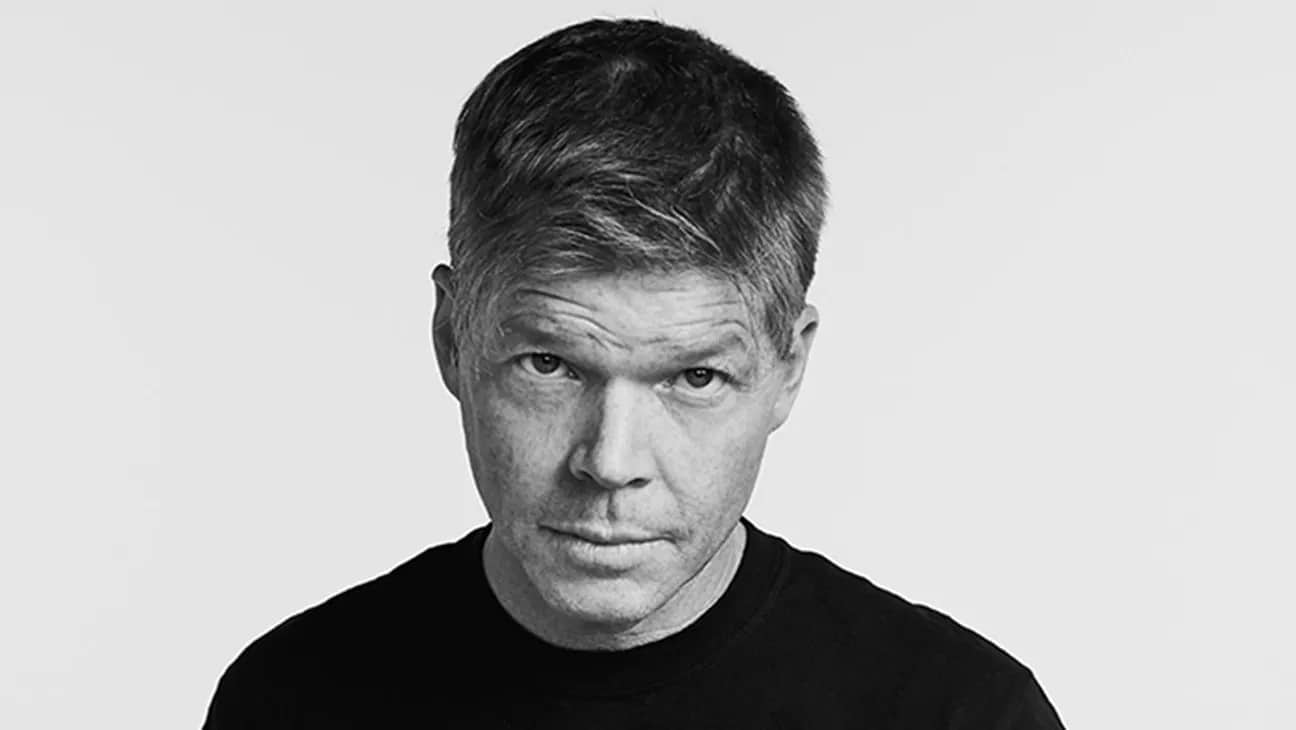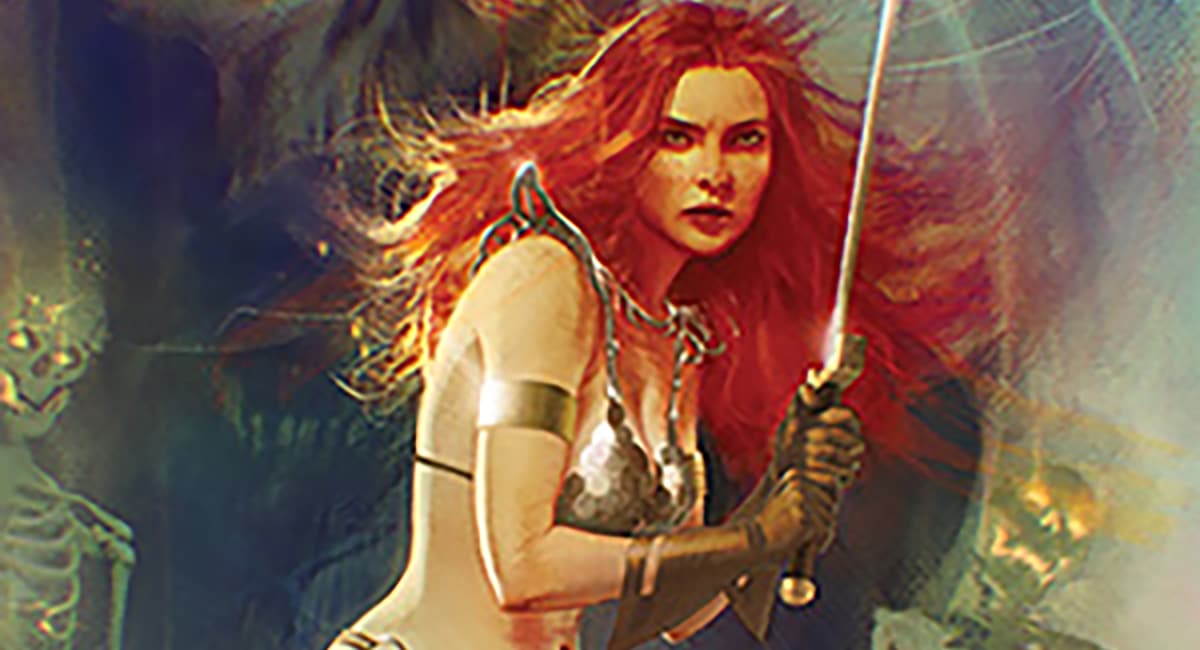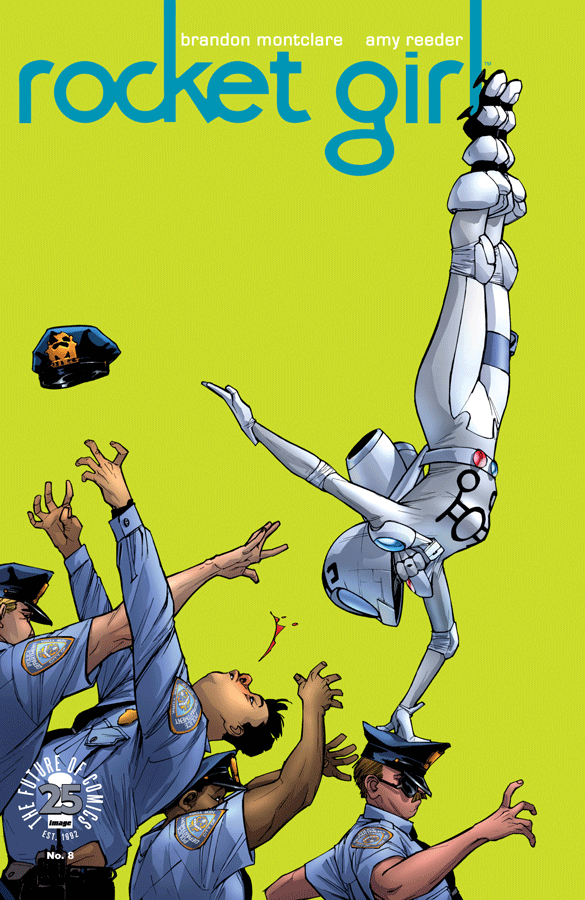
Brandon Montclare: What do you need to happen for you to produce a story so good it will ‘change comics forever’?
Amy Reeder: I mean, that’s a big, lofty goal, but it’s definitely something I obsess about! I do, one day, want to make something that is just on everyone’s list as a classic. Or even better, more than one thing. I’m always working toward that point. I think ultimately I will have to become a one-woman show to get there…I’m always trying to figure out how to explain this one. But I think writing and drawing can really free you up to come up with the best possible way to tell a story. And to me, it’s the way it’s told, more than what happens.
I definitely think I have to continue on the creator-owned path to get there. But I do truly think I’m nowhere near my eventual potential. Even though I’m extremely proud of Rocket Girl!
Reeder: Imagine the story of ROCKET GIRL as an iceberg. Meaning, there’s a percentage that is actually published and there’s a percentage of events in your mind that never make it to the page. What’s the breakdown… how much is below that water?
Montclare: It’s a mountain under there. And it’s also nothing at all. I’m not trying to be cute with that equivocation. It’s complicated. There’s obviously more in the actual script that makes it onto the page. But there’s even more that never makes it into a script.
All this being said: what doesn’t make it onto the page doesn’t matter. If I’m a good writer, it’s because I don’t have unpublished character backstories or a series bible. All I do is make sure is make sure the stuff that makes it onto the page is inherently consistent. The collaborative creative process does need some motivation and parameters; story needs structure. But in any art—especially in comics–immediacy is a necessity. Basically: you need to engage the audience. And what makes them engage quickly is usually the same thing that makes them connect deeply. You get that by coaxing or dragging or tricking them into becoming a part of the story. I’mm a big believer in having my readers bring a lot into the story. And since every reader is different, you need to leave a lot of room for what they bring to the table. What happens between the panels is everything in comics–and that requires the reader’s brain, not mine.
Montclare: What kind of person is Amy Reeder when she’s teaching a drawing class?
Reeder: I’m usually goofy and insanely approachable, but it’s actually somewhat calculated–I do that because it makes the students react more, and that makes me more relaxed so I can teach better. I’m a teacher at heart, and I think that passion comes through. I’ve been told that I explain things in ways that make a lot of sense, that I think things through and have a reason for almost anything I do. I haven’t gone to art school but I believe my approach tends to be pretty original. Basically what I’m saying is I’m really, really good at teaching…and there’s no non-awkward way to explain that one! But hey…I am?
Actually, let me a total jerk and add to this. I believe that whatever makes me good at drawing comics is the same thing that makes me a good teacher. They’re both about understanding people. They’re about knowing where people’s minds are, and getting all those different minds on the same wavelength at once, then moving them from that point A to another point B. I am obsessed with understanding and communicating with people, in many forms.
Reeder: Why don’t you like TV series but you DO like movies? You like monthly comics, and comics are more like TV series. EXPLAIN.
Montclare: This is like the time you said I only listen to “70s music”. It’s not true! There’s some great TV series. Some episodes of Twilight Zone still haven’t been surpassed in both narrative as well as visual storytelling. I’m not a Trekkie, but the original series is a grand picaresque and Next Generation is good too. I genuinely love Agents of SHIELD, which goes against all my taste-predictors. Twin Peaks, although that series hasn’t had anything to say since the end of Season One–including, unfortunately, the current revival. Breaking Bad is tight long-form performance.
But… maybe there is a pattern that I’m less enthused about ongoing long-form TV than self-contained episodic stuff. And I do think it’s really hard to compare anything aired on TV against Maltese Falcon or Blade Runner or Die Hard or Usual Suspects or Pulp Fiction. The different levels of appeal isn’t runtime, though. It’s really the prioritizing of visual storytelling! There’s a lot more that can be done for the Big Screen. Although the art of cinematography is changing after a period of general neglect–no doubt that’s partially the influence of TV and even smaller device screens. But movies devote more time to creating an immersive visual experience. They devote more production time to everything. So, yeah, by-and-large it’s a better product.
Montclare: Is there anything that would make you quit comics?
Reeder: I think it’s important for me to be in a good place mentally, or I will burn out. That’s not a bad place to be in–it’s nice that I have to put me ahead of comics in order to put comics first. I definitely have to draw things that make me proud…I can’t ever mail it in or there’s just no more enjoyment. I’ve also got to make sure I’m either working alone or that the people I work with don’t complicate things for me.
All that said, I really, REALLY love comics. I love a lot of things, but this is really, truly the most fulfilling thing that I want to do with my life. It feels like it was made for me.
Reeder: Do you have any unique techniques that help you in your writing process? Something to break through writer’s block? Or an order of steps you take? Don’t you use a red marker in a spiral-bound notebook or something?
Montclare: I don’t get writer’s block. My worst productivity periods are when I’m overwhelmed and don’t have the mental fortitude to maintain creative consistency. Everything I do is meticulous. It’s layered. It’s layered to such a degree that no one sees it all but me. My creative process depends on a kind of discretion that I always had, and maybe developed a little working as an editor. What gets left in, what gets changed, where do I put it, how heavy handed am I going to make it. I love live music and hugely respect improv–but those kinds of things ain’t me.
I do have a fondness for felt tip pens. The kind that border on being markers, like a Papermate Flair. They don’t have to be red–blue or black work too.
BONUS: If you could give one ROCKET GIRL character their own spinoff, who would it be?
Reeder: Hrrm! Well I’m assuming I’d still be drawing, so it’d have to be someone I love to draw. Commissioner Jim Gomez is too obvious an answer…but I do like him a lot. I REALLY love drawing Detective Ciccone, because he looks so different from my typical characters. Actually, seeing as Gomez and Ciccone sort of mirror each other, it’d be awesome if they were in a buddy cop story together!!
Montclare: Yeah, these were supposed to be questions to each other for which we didn’t know the answer! The obvious answer is Commissioner Gomez. But because I’m contrary I’ll say Tasha Tallchief–Rocket Girl’s mysterious disgraced former partner. Commissioner Gomez—as both a character as well as a storytelling device—drives home some of the absurdity, that’s an important undercurrent in Rocket Girl. You can’t take your work too seriously… and the best way to show that, I think, is in a character who demands (in several ways) that we indeed take him seriously. As much as I love Commissioner Gomez, I think he maybe works best in small doses–that is to say as a supporting character used for counter-points. He’s the type of character where I probably would never turn down adding a scene… but a whole series? There is such a thing as too-much-of-a-good-thing. Maybe a one-shot? Definitely a back-up.
Rocket Girl #8 is on sale today!


